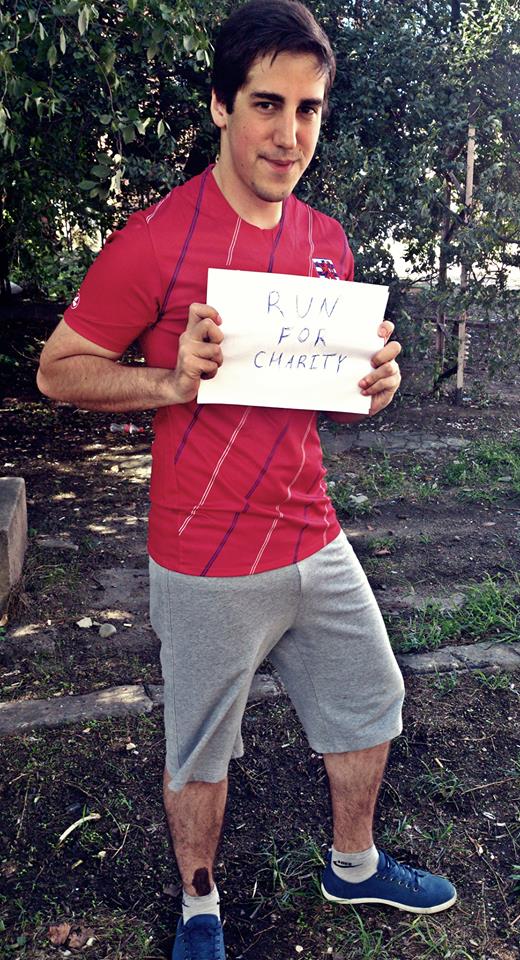
Boris Kiknadze. (DF Watch.)
TBILISI, DFWatch–According to the official data, one out of three young Georgians (20-29 years old) is unemployed. But a senior student at the University of Georgia Boris Kiknadze is not one of them.
Less than one year ago he established a crowd-funded charity called WeHelp, which raises money for medical causes. Kiknadze also leads a regional chapter of global young social entrepreneurs organization ‘Kairos’, teaches business and entrepreneurship at Newton Free School, is starting a new online project for street musicians and works on a few other smaller projects.
What can you tell us about the charity sector in Georgia?
Before I have started WeHelp, I saw that there were a lot of black holes in charity and non-profit sector. It wasn’t transparent, you didn’t know where money went. There are two big charities [the Georgian Orthodox Church and Iavnana], who have monopoly, but when I dug deeper, I found that they spend a lot of money on their own expenses, instead on focusing on the needs of beneficiaries or their mission.
There have been a lot of false calls for help in the social media. For example, there was a call for help for my friend, who was dead for three months, circulating in social media, and people were sharing it, and donating money to nowhere. And people in the street walking with those boxes. You don’t know if the money really goes to the beneficiaries, or somewhere else. Another problem, is that you don’t see the results. My friends and I have donated to several causes, but we never saw any results.
When I was starting WeHelp, I contacted these main charities and offered them to cooperate, but I got rejected. Nowadays, they are on their own, and we are on our own. I don’t see them as competitors as we are working on different things, and together we can change a lot.
Can we talk about WeHelp? Why did you start it?
A friend of mine got into a car accident a few years ago, and back then my friends and I were not able raise enough awareness and money for her and we were not able to help her. After, I decided that people should have their chance, and their relatives and friends should be able to help them. It was the turning point, and a year ago we started WeHelp.
It is a charity crowd-funded platform, which I founded 11 months ago. We focus on people who need medical help and don’t have enough money and other resources, so we raise money through the crowd sourcing. So far, without any external funding for our internal expenses, we have saved 17 lives and raised 300 000 GEL. I have started it with my own money, and from the very beginning we decided that we want to be fully independent from any big foundations or companies and be fully transparent.
The beginning was very hard, because first two beneficiaries had died, as we were not popular enough and didn’t raise enough money. At that moment I was thinking that maybe this project is a failure and we should stop. But the third of our beneficiaries got fully funded and he survived. We have been raising money for him for 7 months, and few months ago we got the news that he is finally well. It was really touching, he came over to our office a couple of times to thank us personally.
Now people find us and donate. We have about 150 000 unique users at the moment, which is a very good result for such a small market as Georgia. Next year we plan to expand to Azerbaijan, later we are thinking of starting negotiations with Armenia and Kazakhstan.
WeHelp is self-sustainable, as people have an option to donate straight to the organization. We are not taking money from beneficiaries, as we believe that all money should go to them. About 10 percent of all donations are dedicated directly to the organization, and it is enough to be sustainable and to cover necessary expenses. I don’t that we would get the same results if we were taking fees from each donation, because people want changes in transparency and trust, and we give it to them.
Most of the people we save are children. Older people do not get as much funding. The majority of beneficiaries need medical care outside of the country, in Germany, Israel, Turkey or Russia for example. The state can not cover all their expenses, and when they come to us, these people are desperate and sometimes we are the only hope for them. It is a huge responsibility, but when we see the results, we are proud of our team and of all the people who donated.
It is still hard to make people believe that even 1 or 5 GEL can save someones life, but I hope that it will change in the future. The average donation is 10 GEL, but some donate 1 GEL, and some 100 GEL. Our donors are mostly from cities, 23-40 years old, either students or those who have a job. There are five full time employers and about 12 volunteers who work with this project. However, none of our team has any salaries yet. But it might change when we expand to Azerbaijan.
What is the main motivation for you and your team?
My team at WeHelp knows that they are working for a good cause and they are happy to save people’s life. I am too. Money is not the main motivation for us. Maybe I am too young and not smart enough to want money, but for me it is more about changes and the impact that I have and not about money.
What is it like to lead a team?
There are 7-10 people working in my teams [WeHelp and Music Pro, a new project for unknown musicians], apart from volunteers.
It is challenging to make people listen to me. Some say that you have to be very smart, or very experienced, or to have leadership skills and so on. But I would say that you need it all. I have been working since I was 16 years old in different positions in different industries. I have had a lot of good managers and I’ve learned a lot from them. I have had bad managers, and I’ve learned a lot from them, and I try not to use their bad tactics, but to apply something new instead. It is not easy, but it is interesting, complicated and challenging.
Some of my team members are younger than me, and some are older. But they respect me. Age is not really important nowadays. If we look worldwide, there are a lot of young leaders who are building and managing companies of hundreds or thousands of people, there are also young people in politics. Age does not really matter. What matters, is experience, skills and knowledge. If people see all of it in you, they will follow you. But at first you have to believe in yourself, that you can lead them. If you don’t believe in yourself, they will not believe in you either.
Would you advice on creating a startup?
It is a good idea to start something, but it is a bad idea to wait for investors. You have to create a unique product and you have to get a lot of customers. Both of these are very complicated. There is a lot of innovations, and any idea that you come up with probably already exist, and you will find it if you google it.
It isn’t easy to get customers either, especially in Georgia. Georgians mostly like traditional market and traditional business, and are not innovative. We are working to change this, and I am very happy to have a great team.
You have to work hard, try to find a lot of people, connect with them, pitch your idea a hundred of times, and maybe once you will get lucky and some investor will believe in you. I’d advice entrepreneurs to focus on a global market, as potential investors are not interested in such small market as Georgia.
Is it easy to be a young entrepreneur in Georgia?
It is not easy to be a young entrepreneur in Georgia. It is also not as exciting as people imagine it. When you are a self-made entrepreneur, and you don’t have any external help from your relatives or big companies, it is very hard to push yourself forward, because you have to dedicate all your time and all your resources for it.
I used to work in a big company, had a good salary and benefits, but I didn’t feel comfortable. So one day I told my mother that I didn’t want this job anymore, that I wanted to give it up and to do something bigger. It was hard at first, 9 months without salary, but I didn’t give up. Even when you brake through, there is a lot of challenges and competition. You can never settle down and relax, because all of your projects and all of your companies are like your own baby and you can not even leave them for a week or two.
There aren’t a lot of young entrepreneurs in Georgia, maybe 10-20 people who are doing a really good job. It is a small community, and in each event inside or outside of Georgia I see the same faces. Some of my friends see each other as competitors, but I prefer to see them as colleagues. I am trying to cooperate with them, even if we work in the same field. Even if we go for the same funding, I see it as a friendly challenge.
A lot of young people complain that they don’t have jobs…
You shouldn’t look for a job, you have to create one. Not only for yourself, but for your friends and colleagues. If you just sit at home, and just wait for a job announcement and apply for it, it won’t work in most of the cases. You have to go out of your comfort zone and search for a solution. There is a lot of problems that you could fix, and people will be willing to pay for your innovation. You just have to find what you like to do and how to get money out of it, and it will help you to become happier than most other people.
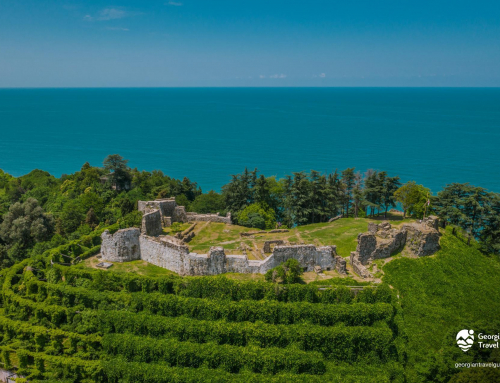
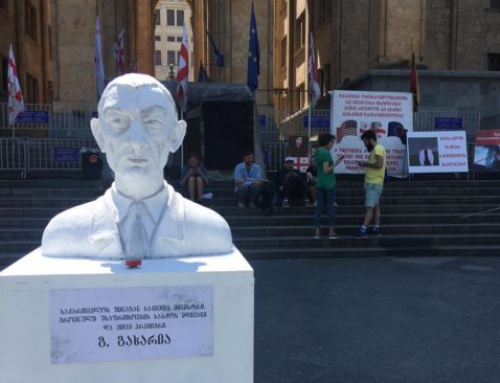
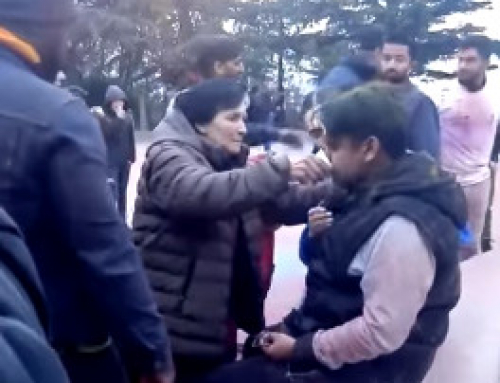
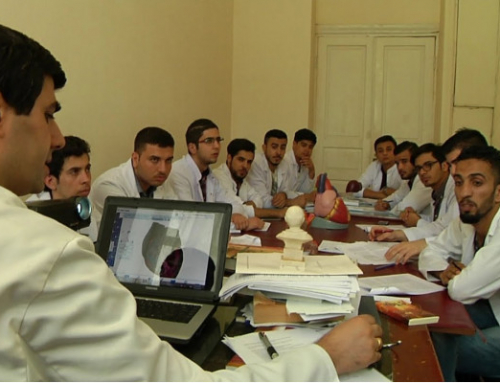
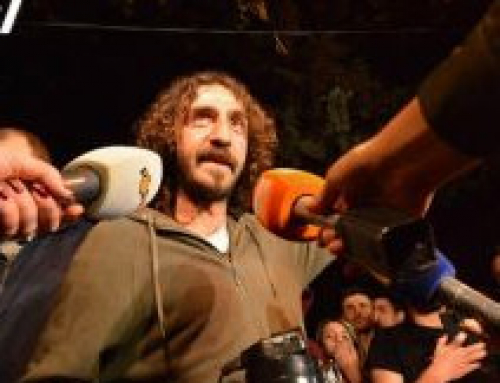
Leave A Comment
You must be logged in to post a comment.